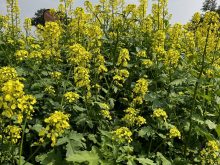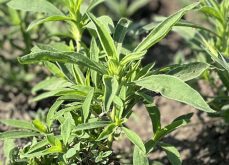Farmers are being reminded to watch for allergen risks when handling cereals.
Even a trace of the wrong crop can cause major problems in export markets, warned Keep it Clean in a recent update.
Keep it Clean is joint initiative of the Canola Council of Canada, Cereals Canada, Pulse Canada and the Prairie Oat Growers Association. The organization provides farmers and crop advisers with timely updates on potential market risks and practical resources to help ensure crops meet the standards of both domestic and international customers.
Read Also

AgraCity’s farmer customers still seek compensation
Prairie farmers owed product by AgraCity are now sharing their experiences with the crop input provider as they await some sort of resolution to the company’s woes.
“Maintaining a reputation for clean, safe grain is crucial for both domestic and international markets,” Keep it Clean noted in the update. “Contaminated shipments can lead to costly rejections, recalls and damage to market confidence.”
Mustard, soybeans and especially buckwheat are flagged as concerns. Buckwheat is considered highly allergenic, and if it slips into a wheat, barley or oat shipment, it can trigger severe reactions and significant trade consequences.
“The unintentional mingling of these allergenic grains with cereal crops can pose a significant risk to consumer health and market access,” the update said.
To reduce risk, Keep it Clean advises farmers to:
- Thoroughly clean combines, grain carts, trucks and bins if allergenic crops were harvested earlier.
- Store allergenic and non-allergenic crops separately, and ensure trucks and railcars are free from residue before loading cereals.
- Keep records of rotations, bin use and cleaning, and share details with buyers.
Keep it Clean stresses that simple steps on the farm can help safeguard consumers and Canada’s reputation as a reliable grain supplier.
















